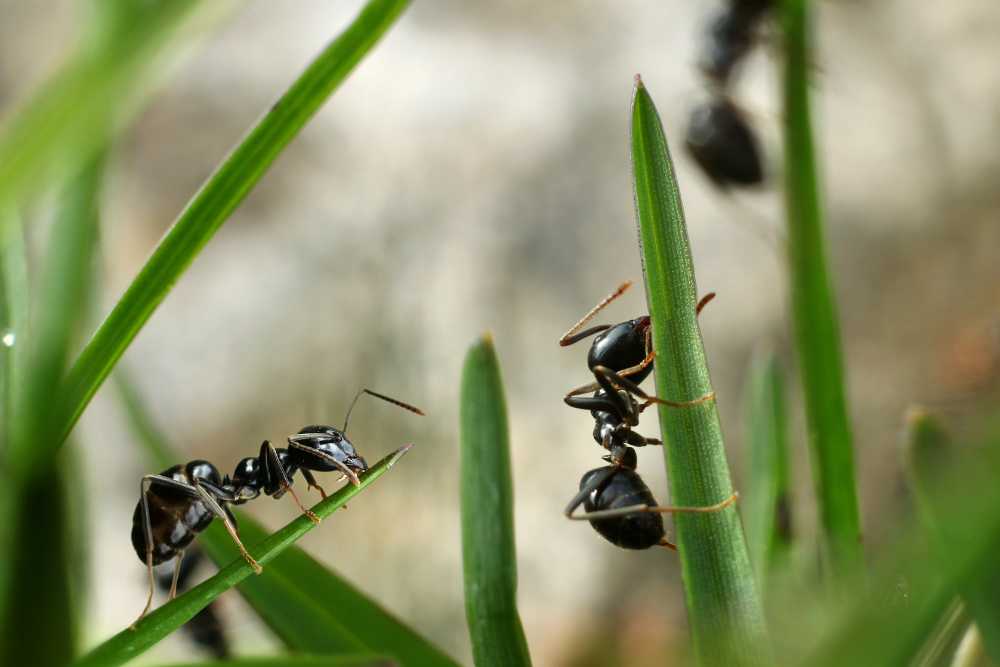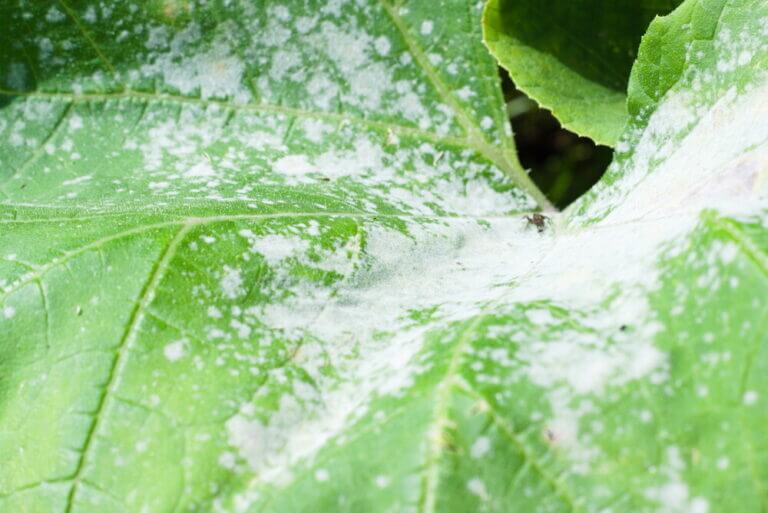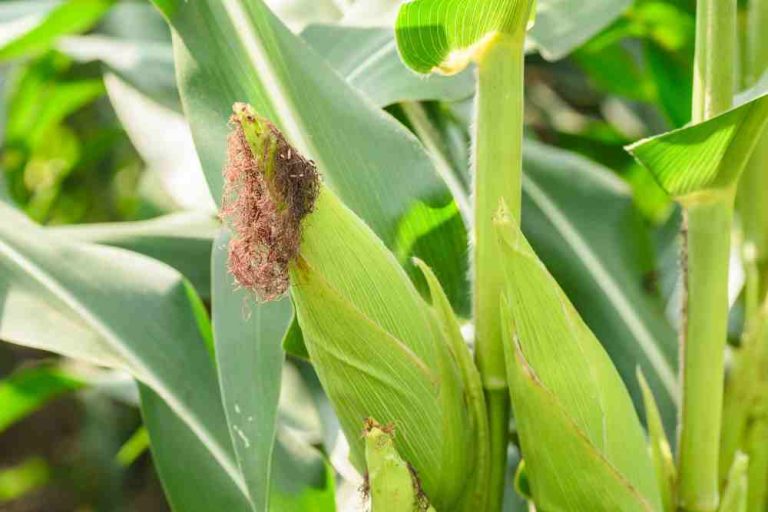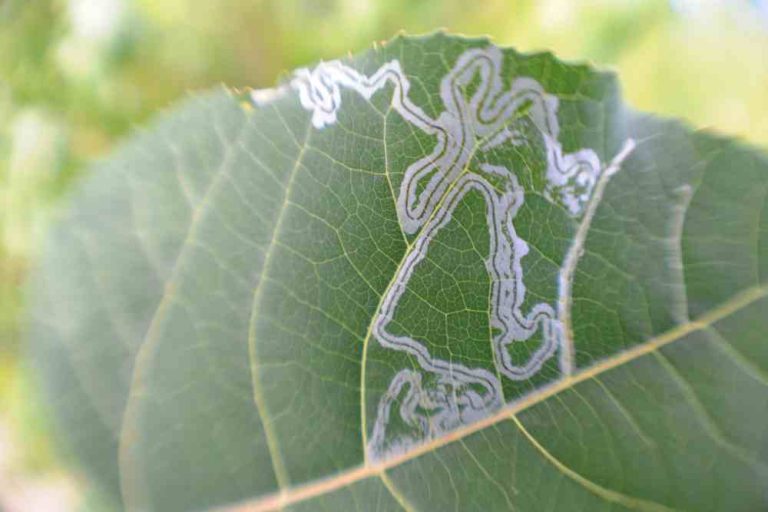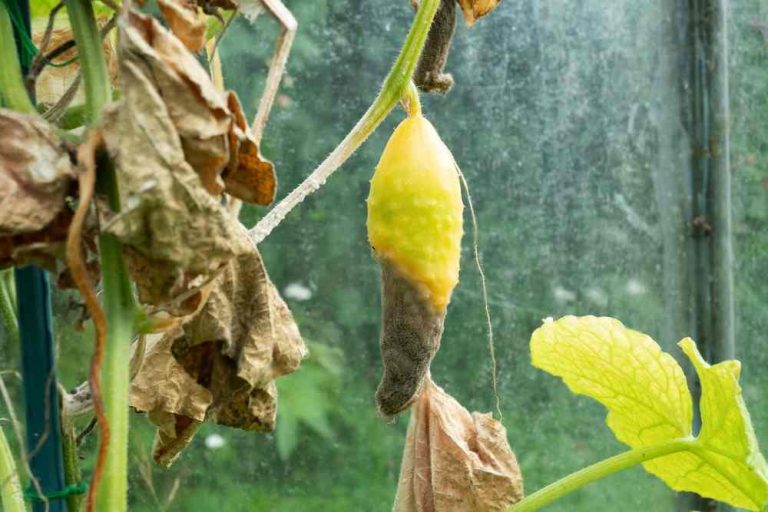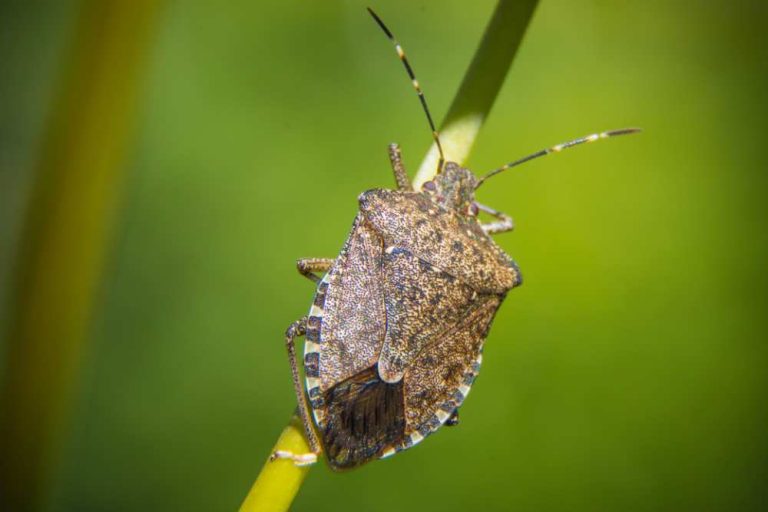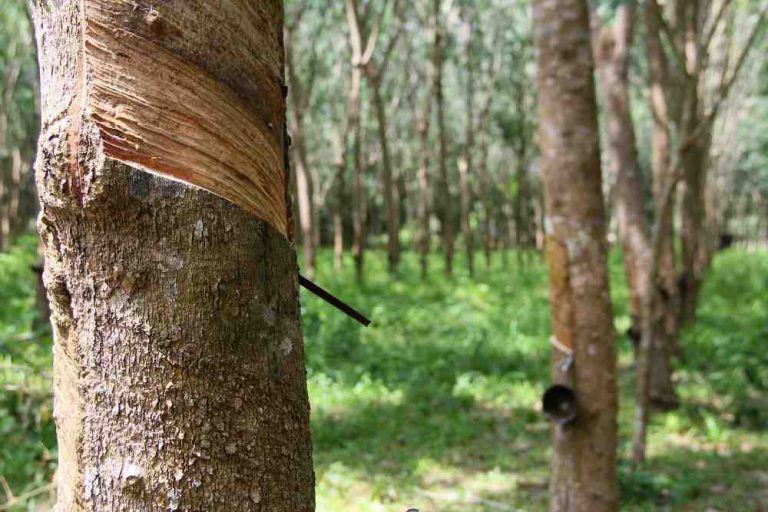A Comprehensive Guide on How to Get Rid of Ants in the Garden Soil
Do you ever notice ants moving over branches and leaves or climbing up stems? What about your houseplants? Do you see them in your potting soil? Ants are one type of pest that many gardeners struggle with.
Some of you who are more environmentally conscious may question whether ants are suitable for your garden or if they harm your plants. Your garden may benefit in specific ways from ants.
They can help pollinate plants while foraging because they are predators and hunt other insects in your yard. However, ants tend to create nests near the plant roots, which can impede growth and make plants more susceptible to disease. This article will explain you you how to get rid of ants in the garden soil.
What Are Ants?
Ants are intriguing eusocial insects belonging to the Hymenoptera order, including bees and wasps. They reside in nests where there are hundreds or even thousands of ants. However, there will also be males and fertile females (queens), known as workers.
The majority are wingless sterile females. Ants are one of the most common animals and crucial ecosystem elements, influencing the flora and fauna of vast ecosystems. They can control greenflies and other aphids in gardens but can also damage the soil and be significant predators.
Types Of Ants Cause Damage In The Garden
Some ant species have the potential to harm your garden. Carpenter and fire ants are the two varieties of ants that should be avoided in gardens. Let’s examine the type of harm these ant species are capable of causing in more detail.
Carpenter Ants
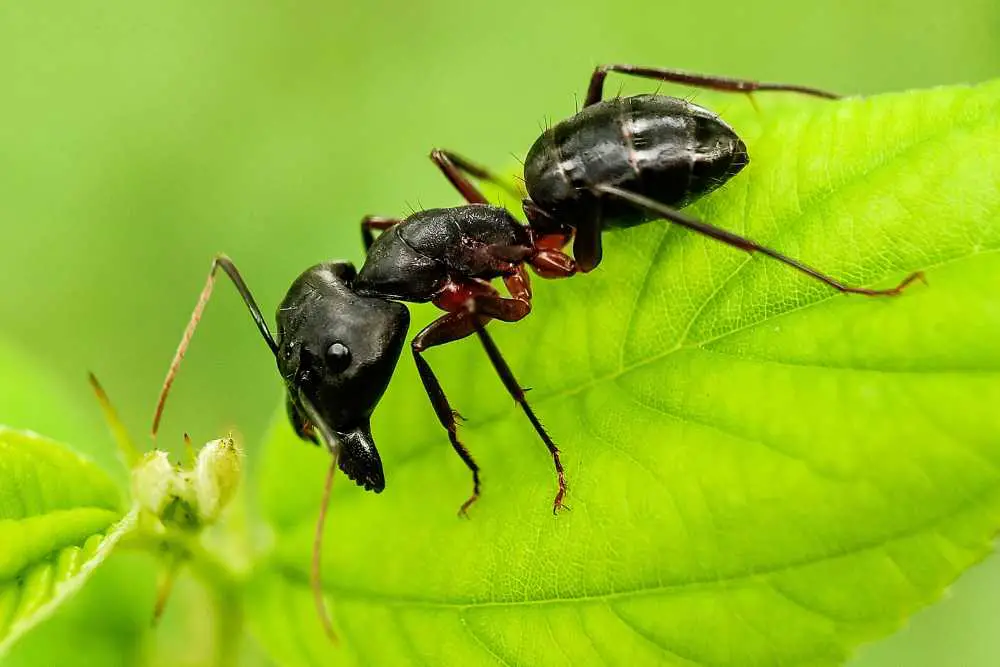
They are a species of ant that is endemic to various parts of the world and are typically found in forested areas. Carpenter ants attack wooden constructions in homes and buildings, hollowing out the wood and leaving huge holes in them. These ants threaten vegetable gardens because they decay the wood supports for some plants.
Black Ants
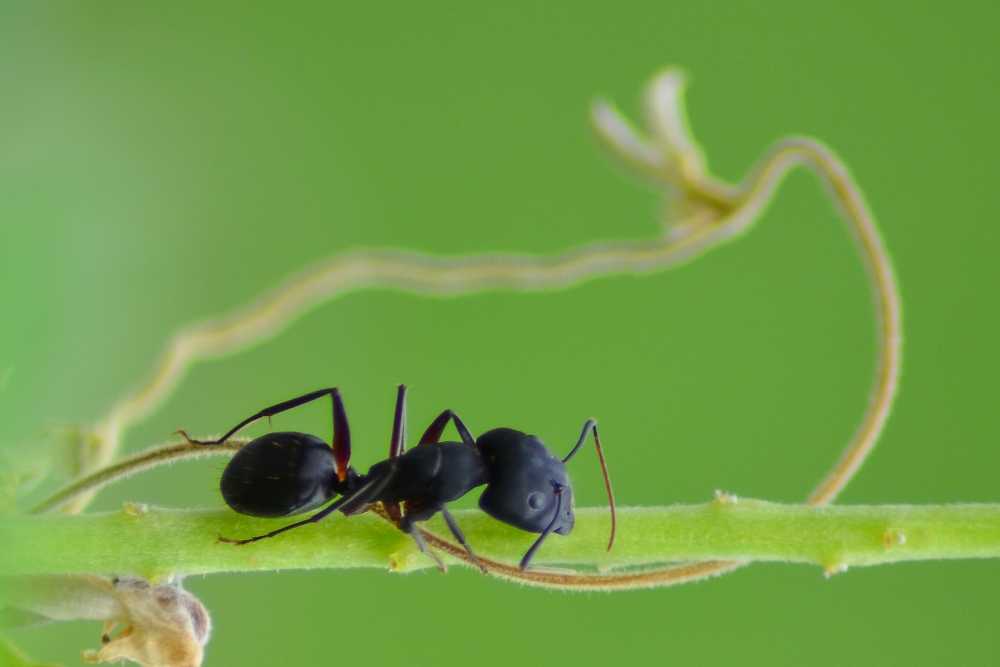
Due to their ability to aerate and pollinate the soil, black ants benefit garden beds. These ants consume the plant’s nectar while guarding it against pest herbivores like fly larvae and aphids.
Stinging Fire Ants
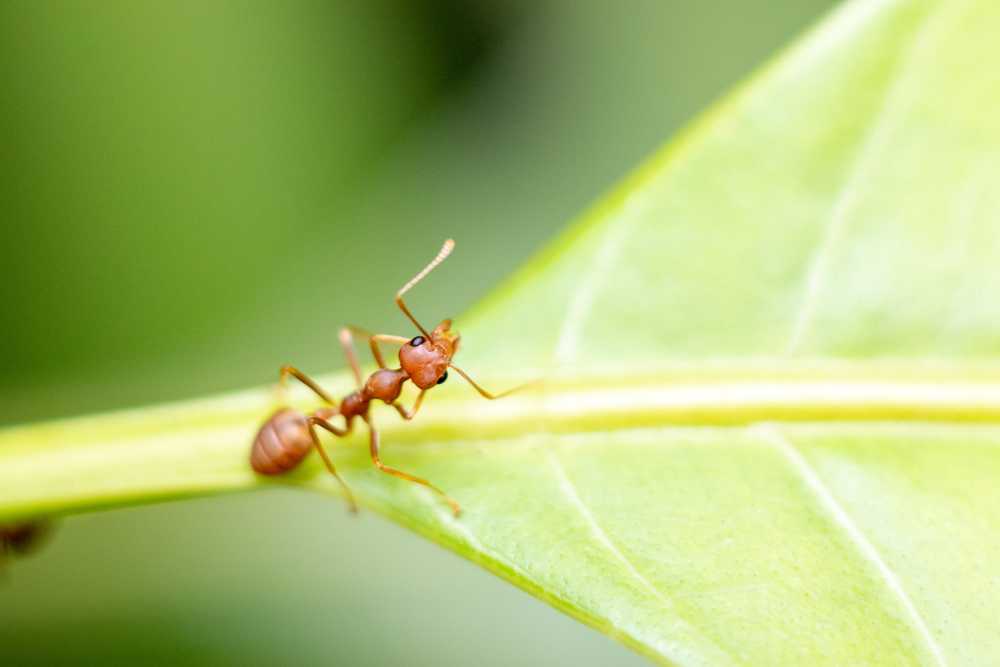
Also called red ants, flourish in open, sunny regions where they may swiftly spread and create large mounds that can reach heights of seven inches. These ants respond violently when outside forces damage their mounds, swarming intruders and continuously stinging them with venom. Due to their grazing on maize and watermelon seedlings, they also pose a threat to vegetable crops.
Leafcutter Ants
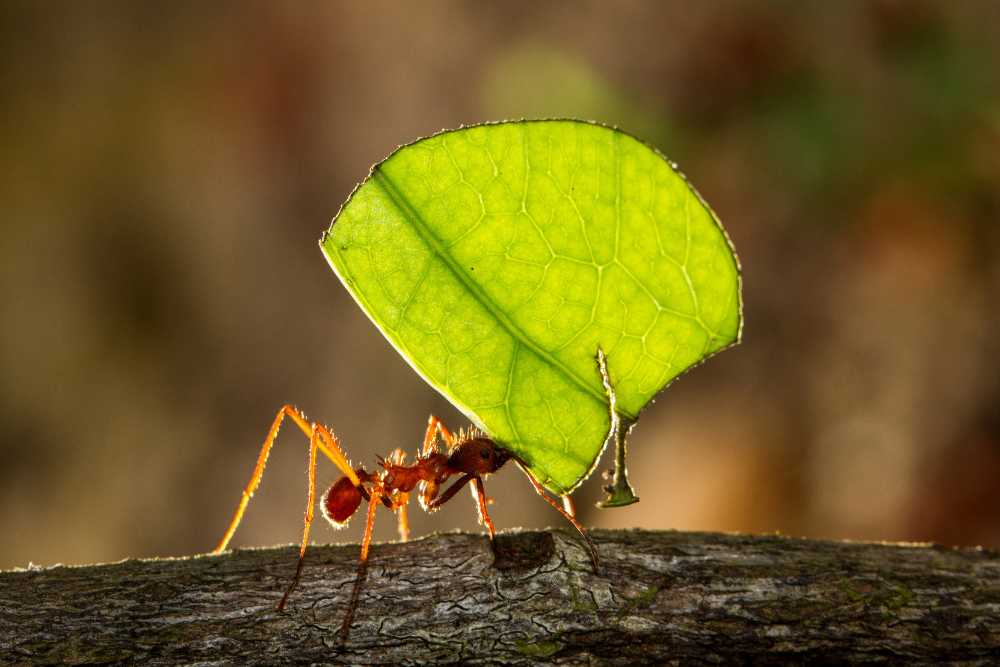
These reddish-brown ants have spines on the backs of their bodies. These ants scrape off plant leaves to gather the fungus they consume. Remove leafcutter ant colonies as soon as you spot them because they can destroy entire gardens if they aren’t controlled.
Yellow Meadow Ants
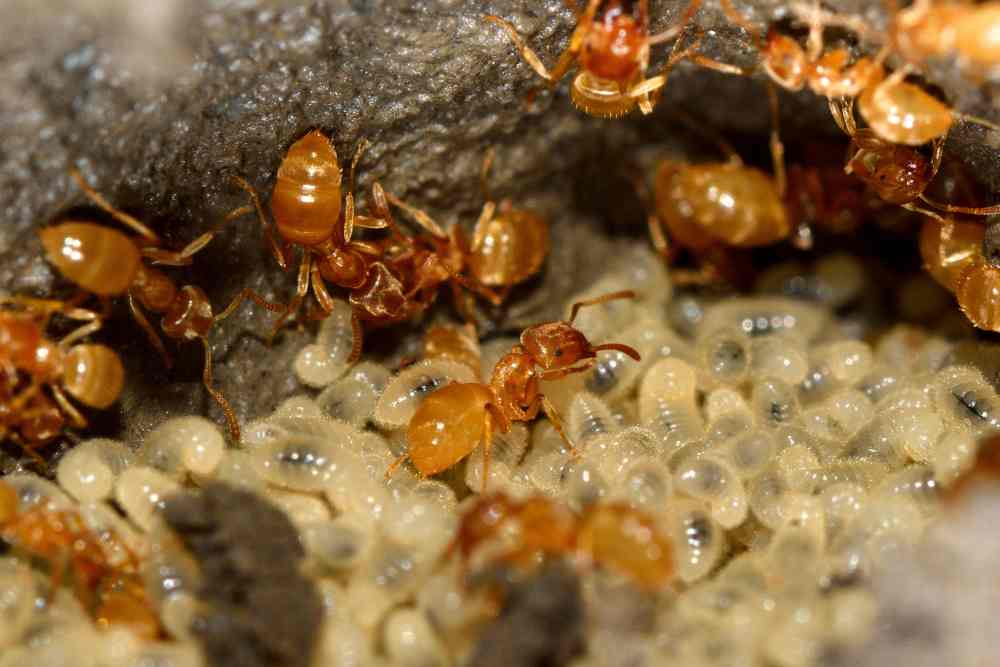
Like black ants, yellow meadow ants are harmless garden pests. These ants only come to the surface when their nest is disturbed; otherwise, they are underground. They produce mounds that might be unsightly in flower beds despite adding nutrients to the soil.
Symptoms OF garden ants Damage
- Ants might be a nuisance, but they are essential to a healthy garden’s biodiversity. With various worker ant casts and ages, the structure of a eusocial nest can be complex. They frequently form mutualistic relationships with sap-sucking insects like aphids.
- Ants collect the sweet liquid, honeydew, secreted by aphids and other sap-feeding insects. Ants eat primarily on other invertebrates, including other ants. To ensure their supply of honeydew, ants can defend aphids from ladybirds and other predators. Increased aphid populations could result in increased plant damage.
- Ants rarely directly harm plants, but they disturb the soil around plant roots and deposit soil on the surface while constructing their nests. This may be a problem on lawns and in areas where excavated earth buries low-growing plant life.
- In pots and other containers, they could also disrupt the roots of plants. Plants may also be more prone to wilting due to this disturbance, particularly if their roots become dry.
- Ants occasionally build their nests in compost bins or heaps. They won’t harm anything in this case.
- Some ants, primarily the Myrmica species, sometimes known as red ants, can sting, but for most humans, this is merely a minor annoyance.
How Ants Benefit The Garden
Ants are not always terrible for the garden because they strengthen the soil’s structure, which benefits plant growth. Garden ants also help to control the populations of several garden pests that can harm crops. Ant behavior also aids in the breakdown of organic matter, which then serves as fertilizer for plants. In your garden, having ants is beneficial for the following reasons.
Ants are necessary for a healthy ecosystem
Garden soil benefits from and becomes more productive with the help of common garden ants. Ants are hardworking, sociable animals that crawl under the ground in quest of food. Ants break up the soil in order to reach the roots of plants and vegetables and provide them with oxygen, nutrients, and moisture.
Ants assist in reducing garden pests
The majority of ant species are beneficial creatures that reduce populations of common pests. Ants consume the bug larvae that can harm plants and vegetables. Getting rid of caterpillar, moth, and bug eggs reduces crop damage that would result if the pests were allowed to live.
Ants aerate the garden soil
Due to their assistance in aerating the soil, ants have a beneficial effect on its health. The soil requires oxygen, nutrients, and moisture to develop plants and vegetables. One of the helpful insects that improve the health of the soil is the ant.
Decompose organic stuff more quickly
Ants accelerate the decay of plants and other insects. They consume creatures that decompose into nutrient-rich organic waste used to fertilize plants.
Seed dispersal and pollination
Ants help in seed dispersal by transferring seeds during their movements to obtain nourishment. Ants pollinate flowers and disperse seeds across your garden bed, facilitating reproduction and germination.
Soil cultivation
As ants do their biological duties, they turn over the soil (till) by bringing up buried organic material to the topsoil, which is extremely beneficial to garden plants.
Disadvantages Of Garden Ants
A few ant species can directly or indirectly injure plants, while most ants aren’t concerned. The following are some drawbacks of having ants in a garden:
Sap Farming
Mealybugs, aphids, and other sap-sucking insects can be carried by ants to plants while being protected from predators. Ants will feed on the delicious byproduct created when nuisance insects feed.
They promote the development of aphids
Aphids are tiny, green bugs that are difficult to spot with the human eye because of their ability to blend in with plant foliage. But aphids harm garden plants via nutrient-sucking. The aphids attract ant colonies by coating the stems in honeydew as they consume the plant’s nutrients. The worker ants promote the development of aphids in gardens by relocating them to new plants and shielding them from predators to safeguard their food source.
They destroy woody areas
Some ant species, like carpenter ants, obliterate woodland areas. While these ants are not directly detrimental to garden plants, they can degrade wooden structures that hold and support your plants. Carpenter ants may go from your garden area to your house, building nests and damaging the building’s foundation.
Ants consume plant leaves
Some ants, like leafcutters, chew away at plant leaves, ruining garden greenery and lowering crop yields. Loss of leaves can impede plant growth since leaves are necessary for photosynthesis, the process through which plants convert sunlight, water, and air into chemical energy.
how to get rid of ants in the garden naturally
It’s never enough to randomly spray ant trails with your preferred ant killer when dealing with infestations of insects. You must target the source of the problem if you want to eliminate the ant issue in your garden completely. The majority of natural remedies take time to take effect.
The reason is that because they are natural, their active chemicals are less harmful to ants than those in commercial poisons. As a result, you might use commercial ant remedies if you feel like the times are worsening. The following strategies have been demonstrated to get rid of ants both inside and outside the ant nest:
1. Oil and dishwashing detergent
Because the dishwashing liquid and oil sink into the ant exoskeletons and smother them, this approach has a very high success rate. You must combine 0.5 teaspoons of liquid dish soap with 1.5 teaspoons of cooking oil (olive and canola work best) and 1 quart of water (0.946 kilos). When the mixture is prepared, pour a portion into a spray bottle to treat ants outside the nest and then pour the remaining liquid right into the nest.
2. Boiling water
Using boiling water to kill ants is the most well-known natural eradication technique. Find as many nest entrances as possible, then fill them with boiling water. You might need to repeat this process several times to eliminate every ant.
3. Plants that repel insects
Numerous plants, especially those that contain essential oils, emit a particular odor that scares away a lot of unwanted insects, including plants.
4. Nematodes
These little worms are ants’ natural enemies. The ants will likely search for a new nest because they cannot tolerate having their natural predator nearby, but the tiny worms will hunt and devour the ants.
5. Diatomaceous earth (DE)
Diatomaceous earth works well in the home and garden to control a wide range of pests. If you don’t want ants to get to the plants, you should scatter them around or in the ants’ path. When the soil is dry, DE performs well. It will take more time to work its magic on a moist surface.
Diatomaceous earth resembles talc in appearance. Diatoms, a common form of algae in open water, are used to make this kind of organic, natural pesticide. It won’t hurt grass or plants because this insect repellant is made of algae. It has trace minerals and is composed of iron, calcium, silica, sodium, and magnesium. Consequently, diatomaceous earth (DE)
6. Cayenne
To deter ants from entering your garden, crush and distribute some cayenne pepper in a line. Chalk, cayenne pepper, cinnamon, curry powder, or baby powder are unlikely to be crossed by ants. All you have to do is reapply whenever it rains and whenever the line is broken.
7. Cinnamon
You can use cinnamon to try a more compassionate strategy. You must sprinkle cinnamon around the plant you wish to keep free of ants and watch as they stay away. Instead of killing the crawling insects, this chemical simply repels them, which is far more compassionate than other techniques.
8. White Vinegar
As you are aware, white vinegar has a wide range of applications. An ant infestation can be eliminated without harming the grass with distilled white vinegar at a 5% concentration. These insects are killed because ants cannot tolerate the low-pH acidic components of white vinegar. To kill the ant nest, pour 1 liter of this type of vinegar inside.
9. Orange Peels
Orange peels are quite helpful when controlling an ant infestation in lawns. They are lethal to ants, which may surprise you. The organic ingredients they contain are poisonous to fungus, which is the preferred food of ants. Ants will look for fungi, so if they don’t locate any, they will move on to another garden. Orange peels you have eaten should be collected and distributed across your yard.
10. Borax and sugar
Knowing how to quickly and efficiently eliminate ant nests in lawns is helpful for more difficult situations. Borax and sugar can be used together. Within a week, it gets rid of all ants. Combine borax and sugar to make a gel, and scatter small bits of it close to the ant trails and the lawn’s ant nest.
Because the sugar attracts the worker ants, they will consume some of the combinations. The remainder will likewise be transported to the queen and other ants’ nests by them. Eventually, the ants will be killed by the boric acid. Although you can use this borax mixture safely around plants and gardens, it harms people and animals.
How To Stop Ants Nesting In Plant Pots
Ants prefer to build their nests in dry and simple areas to tunnel through. One of the main targets is loose soil in outdoor pots. A colony might start constructing a nest in the ideal location when dirt leaks from a dry pot’s drainage holes.
- Maintaining wet soil in potted plants is the simplest technique to stop ants from building nests there.
- The entire pot can be submerged in water and drained if it ever fully dries out.
- You might also try putting a light coating of diatomaceous earth on top of the soil or using it to ring the base of the container.
- You might also try placing your homemade borax ant traps near or inside your potted plants to get rid of the ants.
- 18 Creative Ideas for Stunning Garden Borders - April 16, 2024
- 19 Creative and Cheap Backyard Ideas: Transform Your Backyard on a Budget - April 11, 2024
- 15 Ingenious Kitchen Garden Ideas to Cultivate Freshness Right at Home - April 7, 2024

